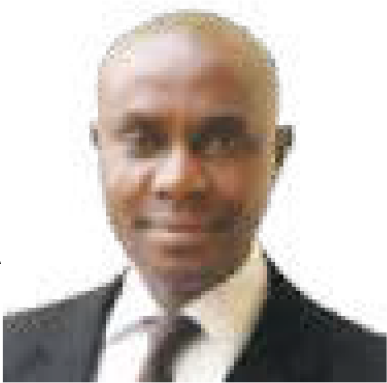Nigeria’s challenges and her political governance framework

Sunny Nwachukwu (Loyal Sigmite), PhD, a pure and applied chemist with an MBA in management, is an Onitsha based industrialist, a fellow of ICCON, and vice president, finance, Onitsha Chamber of Commerce. He can be reached on +234 803 318 2105 (text only) or schubltd@yahoo.com
December 23, 202437 views0 comments
Nigeria’s democracy, under the current dispensation, involves participatory electioneering campaigns. But it dramatically turns around to end inclusiveness of the electorate, mostly by successful candidates, after the social contract obligations on the part of the voters have been carried out and consummated. The voters immediately feel disappointed and embarrassingly edged out. These electorates (in most cases) are not given a fair chance either to further contribute ideas or have a say on how governance decisions are made. This style used by some politicians does not sufficiently ensure deliverance of democracy for the people. Consequently, the democracy that is practiced in Nigeria is deficient in its full definition and meaning because the political leaders in the country characteristically do not walk their talk in most cases. They are largely full of deceit which they display once they grab power after voting, by turning their backs on the very electorates that voted them into power; and they fail to fulfill their campaign promises afterwards.
Since the inception of the Fourth Republic in 1999, the nation’s challenge is no longer stability in the transitional processes among political parties forming government through elections. The major problem now lies with the sincerity attached to the processes that serve the needs of the general public through institutions built to deliver open, accountable and responsive governance. This is observed to be a case of moral values deficiency within the entire system. Everyone is in a hurry “to make it” by all means (by crook or fowl means). An egalitarian society, for instance, ought to be a system where everyone is constitutionally guided and protected by law as citizens with equal rights, where social values and services are not discriminately rendered by those in authority (at all levels). This, actually, is direct democracy as practised in republican settings (even among communities where decisions are made through popular assembly). But there seems to be a lacuna in the sense that representative democracy, as presently practised in Nigeria, where elected citizens double as government officials on behalf of the electorate, end up not delivering the expected democracy dividends to their constituents. This is the peculiar case in Nigeria’s socio-political system, and unless this problem is solved, the attainment of economic growth for the nation will continue to produce negative outcomes.
Read Also:
- NCC hosts virtual forum to develop A2P messaging licensing framework
- Nigeria’s Cybersecurity Levy: Doing more harm than good?
- Time for France to embrace Nigeria fully
- Nigeria's 2025 budget to deliver paltry N250K per citizen
- Regulation to innovation: The NCC’s economic impact on Nigeria’s telecom sector
Democratic governance, seen as a tool that promotes rule of law, accountability and transparency, includes the nature of the process and procedures applied in forming a government. This is ideally characterised by free, fair and credible elections where the electorate have the voting right to elect their political leaders without fear of any form of intimidation and manipulation during the polls. However, election malpractices are never ruled out in the system, hence the provision of election malpractices tribunals that take up cases that relate to rigging and other forms of unlawful activities; which also include vote buying. However, the eminent Nigerian professor of political science, Elo Amucheazi, once said of Nigerian politicians in a newspaper interview, “whether you vote or don’t vote they will find a way of getting into power”. This dubious means of grabbing power at all costs and by all means is basically characterised as a do-or-die affair, where people from opposing camps are exposed to the dangers of even losing their lives during the electioneering campaigns, at the voting venue, and during counting of votes. This is one of the major challenges requiring practical solutions because of the social consequences. Not obeying the rule of law during elections is political corruption.
Nigeria’s numerous challenges — ranging from economic hardship, insecurity, energy poverty, infrastructural deficiency, and most importantly, food insecurity — ultimately manifest in the state or nature of the economy, with the negative outcome of economic recession, because of a skewed leadership structure with its obvious deficiency in meritocracy and competence. An aspect of the challenges faced by the nation is the unsustainable belief in the corporate existence of the country, without being unreasonably right on equitable resource control. The Federation model, suitable to our cultural arrangement, meant to be patriotically run with fiscal federalism where each federating unit controls its resources and contributes to the centre in a pluralistic society with about 389 ethnic groups, needs to be considered. It is not the current setting with a Federal Government that controls 68 policy areas in her exclusive list, and has states with just a few in the concurrent list. This particularly touches on the three things that ought to hold a country together — these are basically COHESION; PEOPLE’S INTERESTS; and MORAL VALUES. Nigerians need to be seriously worked on psychologically in these areas (through the advocacy programmes of the National Orientation Agency), to have a changed mentality from the wrong perception of themselves, especially when it pertains to tribal and religious issues.
- business a.m. commits to publishing a diversity of views, opinions and comments. It, therefore, welcomes your reaction to this and any of our articles via email: comment@businessamlive.com
